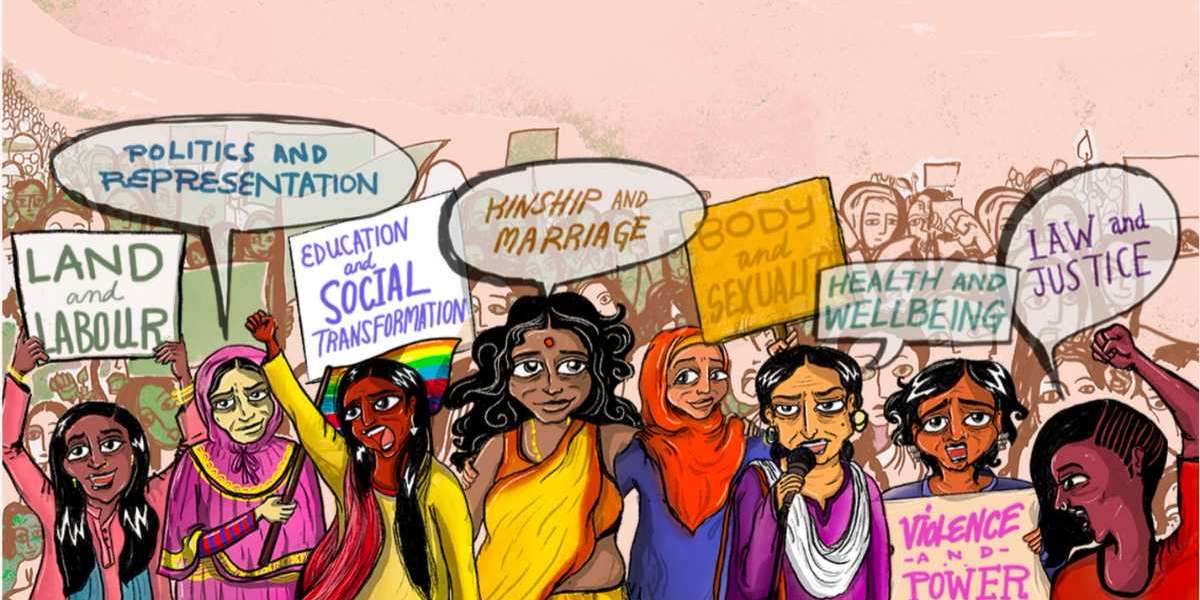"You know, equality is a myth, and for some reason, everyone accepts the fact that women don't make as much money as men do. I don't understand that. Why do we have to take a backseat?" - Beyonce.
It goes without saying that subordination of women is a universal phemenon. Different structures of male domination are bound to result in different forms of female subordination and to generate different types of adaptation or resistance by women. A cross-cultural comparison of male dominance structures enables us to unravel some intellectual disagreements about feminist strategies in relation to motherhood. Different structures of male domination are bound to result in different forms of female subordination and to generate different types of adaptation or resistance by women. As questioned by Sherry . B. Ortner , IS FEMALE TO MALE AS NATURE IS TO CULTURE? - This statement explores how women are subordinated not only in specific cultures of societies but also of same culture or over a perriod of time. So what is feminism? Feminism is the belief in social, economic, and political equality of the sexes. Feminist often try to defy the fact that the reason of universal devaluation of women is not naturally made , its solely on the basis of cultural construct . “culture,” is engaged in the process of generating and sustaining systems of meaningful forms (symbols, artifacts, etc.) by means of which humanity transcends the givens of natural existence, bends them to its purposes, controls them in its interest. We may thus broadly equate culture with the notion of human consciousness, or with the products of human consciousness (i.e., systems of thought and technology), by means of which humanity attempts to assert control over nature.
From a patriarchal viewpoint , women are considered inferior to male gender. So what is the cause of this subordination of women ?
Woman’s physiology seen as closer to nature. Woman’s body and its functions, more involved more of the time with “species life,” seem to place her closer to nature, in contrast to man’s physiology, which frees him more completely to take up the projects of culture. Woman’s body and its functions place her in social roles that in turn are considered to be at a lower order of the cultural process than man’s.woman’s traditional social roles, imposed because of her body and its functions, in turn give her a different psychic structure, which, like her physiological nature and her social roles, is seen as being closer to nature. showing first how in each instance certain factors strongly tend to align woman with nature, then indicating other factors that demonstrate her full alignment with culture, the combined factors thus placing her in a problematic intermediate position. It will become clear in the course of the discussion why men seem by contrast less intermediate, more purely “cultural” than women. These arguments are intended to apply to generalized humanity; they grow out of the human condition, as humanity has experienced and confronted it up to the present day Implication of women’s close association with the domestic context derives from certain structural conflicts between the family and society at large in any social system. The implications of the “domestic/public opposition” in relation to the position of women have been cogently developed by Rosaldo . The notion that the domestic unit – the biological family charged with reproducing and socializing new members of the society – is opposed to the public entity – the superimposed network of alliances and relationships that is the society.
The logic of cultural reasoning aligning woman with a lower order of culture than man is clear and, on the surface, quite compelling. At the same time, woman cannot be fully consigned to nature, for there are aspects of her situation, even within the domestic context, that undeniably demonstrate her participation in the cultural process. It goes without saying, of course, that except for nursing newborn infants (and artificial nursing devices can cut even this biological tie), there is no reason why it has to be mother – as opposed to father, or anyone else – who remains identified with child care. But even assuming that other practical and emotional reasons conspire to keep woman in this sphere, it is possible to show that her activities in the domestic context could as logically put her squarely in the category of culture. one must point out that woman not only feeds and cleans up after children in a simple caretaker operation; she in fact is the primary agent of their early socialization. It is she who transforms newborn infants from mere organisms into cultured humans, teaching them manners and the proper ways to behave in order to become full-fledged members of the culture. On the basis of her socializing functions alone, she could not be more a representative of culture. Yet in virtually every society there is a point at which the socialization of boys is transferred to the hands of men. The boys are considered, in one set of terms or another, not yet “really” socialized; their entree into the realm of fully human (social, cultural) status can be accomplished only by men. We still see this in our own schools, where there is a gradual inversion in the proportion of female to male teachers up through the grades: most kindergarten teachers are female.
Ultimately, it must be stressed again that the whole scheme is a construct of culture rather than a fact of nature. Woman is not “in reality” any closer to (or further from) nature than man – both have consciousness, both are mortal.Ultimately, both men and women can and must be equally involved in projects of creativity and transcendence. Only then will women be seen as aligned with culture, in culture’s ongoing dialectic with nature








